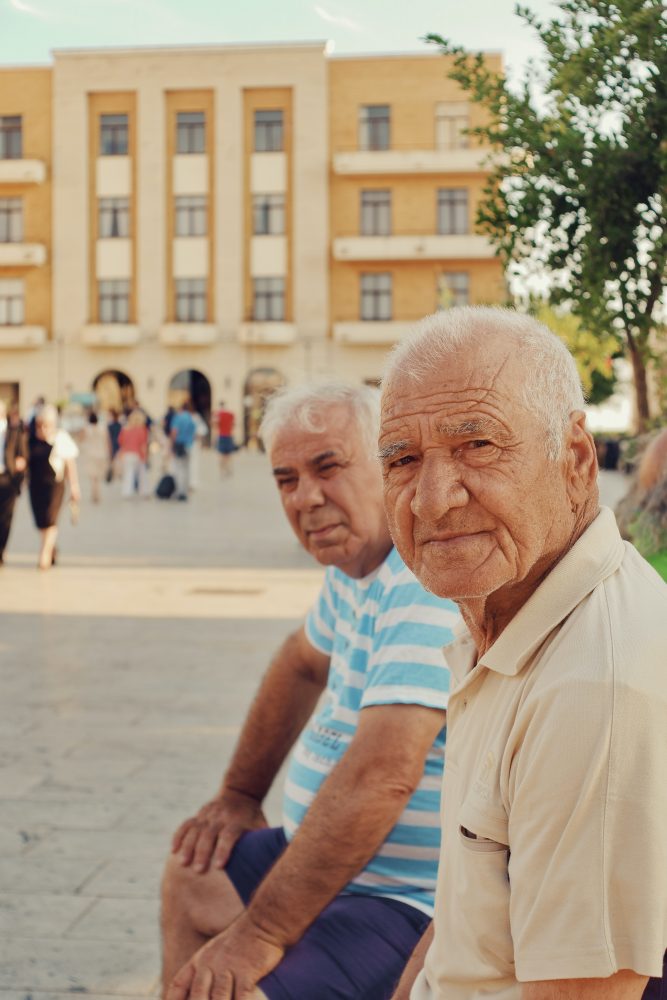As we get older, we start to see that our parents, aunts, and uncles are getting older too. Some will find themselves joining the senior citizen age group within a few years. Hopefully, our older family members are financially savvy. Unfortunately, not all of them will be, though. If they need some help, there are some government programs out there for senior citizens to help them with basic necessities such food, healthcare, and housing.
Government Programs for Senior Citizens
Food
There are a few government programs out there that will help senior citizens. The Supplemental Nutrition Assistance Program (SNAP) helps seniors with low income buy the food that they need. The amount of assistance that a person can receive depends on their income and household size. SNAP benefits cannot be used to buy alcohol and tobacco, nonfood items such as soap, paper products, toothpaste, medicine and vitamins, and hot foods.
Another program that seniors can use is the Commodity Supplemental Food Program (CSFP). This program operates in 47 states. People receive food packages that include cereal, rice, juice, milk, dry beans, and canned fruits and vegetables.
The Senior Farmers Market Nutrition Program (SFMNP) is another program that provides low-income seniors with coupons that can be exchanged for eligible foods at Farmers Markets.
Health Care Assistance
Health Care is getting more and more expensive these days. This is one of the main areas where seniors need the most help. They don’t always have enough funds to cover everything.
Medicaid offers various programs to those with limited income and resources. Some of the programs include Medicaid spend-down, which pays for a pretty wide range of medical services such as x-rays and doctor visits. It also takes care of home & community-based services or HCBs. These provide care based on what your state’s waivers cover. Medicaid also offers long-term care for those who require regular nursing care.
Medicare assists seniors who can pay a portion of their health care costs. Medicare programs include the Specified Low-Income Medicare Beneficiary, The Qualified Individual Program, and the Qualified Medicare Beneficiary. All those offer various levels of assistance in paying premiums, co-payments, and other aspects of health care. Medicare also provides support for those under 65 who are disabled but are still able to work. MedicareFAQ has some good resources about Medicare open enrollment and annual election dates. Check them out if you get a chance.
Senior Health Insurance Assistance Program (SHIP) is a good source of information. This program helps seniors understand health benefits, plans that are available, medical bills and rights. The program supports Medicare beneficiaries.
Housing
Housing is another area where senior citizens struggle. Many want to stay in their homes, but they can’t. Some can’t afford to, while others can’t keep up with the maintenance. The government offers Housing of Urban Development (HUD) which are programs designed to help seniors. Some HUD programs help seniors stay in their homes or find an apartment that fits their needs. HUD also helps with reverse mortgages, rural housing loans, finding affordable rents, public housing, and housing choice vouchers.
As you can see, there are several government programs out there for senior citizens. These services help with food, health care assistance, and housing. If you or your family members need any help, you could start by checking out www.eldercare.gov or usda.gov.
Advice and Counseling Services for Senior Citizens
The Administration of Aging (AoA) is another great resource for senior citizens to ask advice and even find free counseling. They have programs to assist in matters like health insurance, long-term care planning, legal assistance, and elder abuse. They even work with local organizations within communities to help senior citizens access these services as well. Moreover, the Area Agencies on Aging (AAAs) provide in-person assistance with evaluating and filing for these benefits. Their staff will also help gather paperwork and prepare applications to ease along the process. It can be hard to know where to turn, but these trained professionals can help the elderly and their caregivers get the care they need.
Read More
- Senior Renters Are On the Rise, But Is Forgoing a Mortgage Always Wise?
- Tips To Help Seniors Avoid Fraud And Identity Theft
- How Low Income Families Can Deal with Financial Emergencies

Jenny Smedra is an avid world traveler, ESL teacher, former archaeologist, and freelance writer. Choosing a life abroad had strengthened her commitment to finding ways to bring people together across language and cultural barriers. While most of her time is dedicated to either working with children, she also enjoys good friends, good food, and new adventures.


